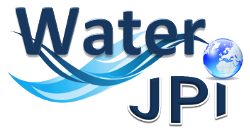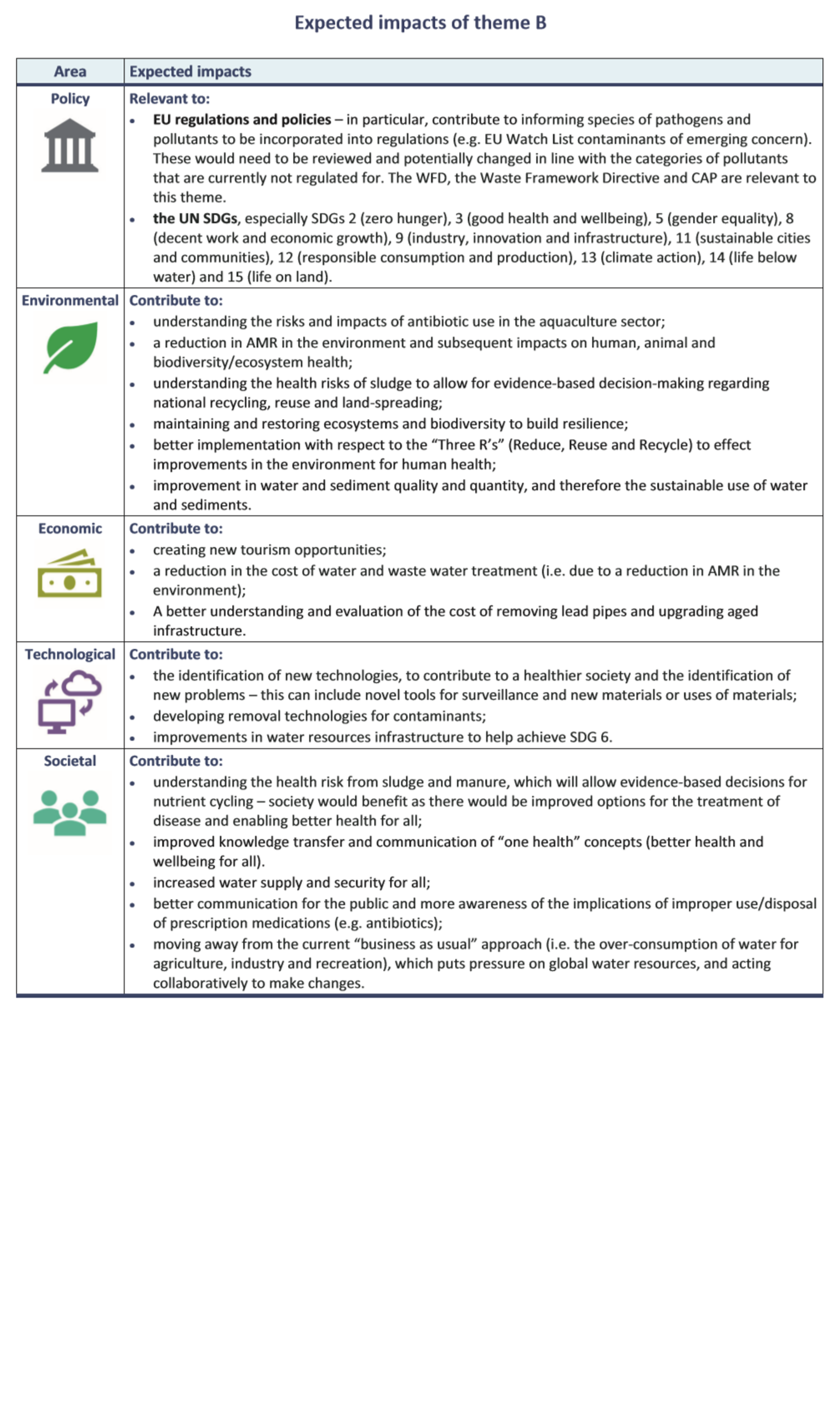SRIA 2025 Theme B - Health and Wellbeing Rationale
The current global population is 7.6 billion and it is set to rise to 8.6 billion by 2030. Coupled with climate change, urbanisation and migration, water demand pressures will significantly increase. Intensive agriculture, over-abstraction of ground and surface waters, the persistence of contaminants of emerging concern in water bodies and the subsequent adverse health effects on humans, animals and the environment continue to rise. The global health crisis in the form of antimicrobial resistance (AMR) is estimated to contribute to 10 million deaths by 2050.
The main challenges under this theme are ensuring safe and clean water, for both people and the natural environment. Further research is required not only on the underlying issues but also on human, animal and environmental impacts – the “one health approach”. This approach seeks to implement programmes, research and policies to understand and evaluate the links between global human practices (including waste water treatments), ecosystems and human health. There is a requirement to develop methodologies on how to prevent adverse health effects of substances both known and not yet known, to have a direct or cumulative impact on public health and ecosystems. There are direct relationships or correlations between environmental aspects (such as agriculture, forestry, water, soil and climate change) and social science and epidemiological aspects (such as opportunistic pathogens in water due to more favourable climate conditions). Higher temperatures, especially in more temperate regions, will see greater transmission rates of waterborne pathogens, such as species of Legionella, Cryptosporidium and Giardia, leading to increased transmission rates of such pathogens. There are knowledge gaps regarding the evaluation of potential risks of transmission on account of extreme climatic events and mitigation measures, such as improvements in sanitation. Furthermore, evidence-based research can serve to inform policy. Research outcomes in this theme can help to inform policy by providing epidemiology in addition to environmental evidence.
Research under this theme also aims to contribute to key policies, such as the EU Strategy on Adaption to Climate Change and the WFD and related directives, which directly contribute to safeguarding and slowing down the deterioration of water resources. The Waste Framework Directive and the Common Agricultural Policy are relevant to this theme and research should highlight the need for the implementation of stricter controls on the use of antibiotics (relevant to farming and aquaculture). Improving the health and wellbeing of all EU citizens is one of the main objectives of the European Green Deal. Furthermore, one of the objectives of the EU One Health Action Plan on Antimicrobial Resistance, adopted in 2017, is to boost research, development and innovation in AMR. The WHO works closely with similar organisations (such as the Food and Agricultural Organisation of the United Nations and the World Organisation for Animal Health) to promote and foster crosssectoral cooperation to respond to associated hazards (food safety and zoonoses) at the human– animal interface and offer guidance on how to reduce risks. Research outcomes within this theme can support and contribute to achieving this aim.
Theme B is composed of:
Sub-theme B.1: Emerging contaminants and associated risks: monitoring, remediation and assessing their effects and behaviour on nature and humans
Sub-theme B.2: Water dimension of anti-microbial resistance; “one health approach”
Sub-theme B.3: Understanding and minimising the risks associated with water infrastructures and climate change effects
Sub-theme B.4: Assessing and evaluating the sustainable interaction between different users (people, agriculture, industry and nature) and their water demands to promote a coordinated resource management strategy

